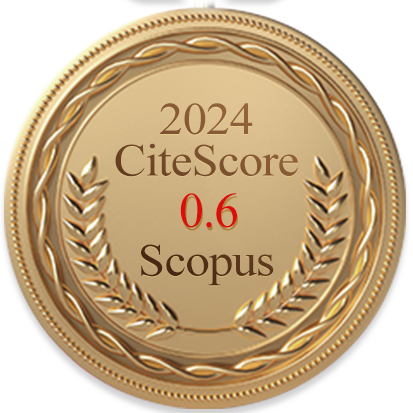Acadlore takes over the publication of JORIT from 2025 Vol. 4, No. 3. The preceding volumes were published under a CC-BY 4.0 license by the previous owner, and displayed here as agreed between Acadlore and the previous owner. ✯ : This issue/volume is not published by Acadlore.
This issue/volume is not published by Acadlore.
Volume 1, Issue 2, 2022
Research article

Abstract
Research article

Abstract
Research article

Abstract
Research article

Abstract
Research article

Abstract
Research article

Abstract
- no more data -
Submission to First Decision

15 days
Submission to Acceptance

32.5 days
Acceptance to Publication

7 days




